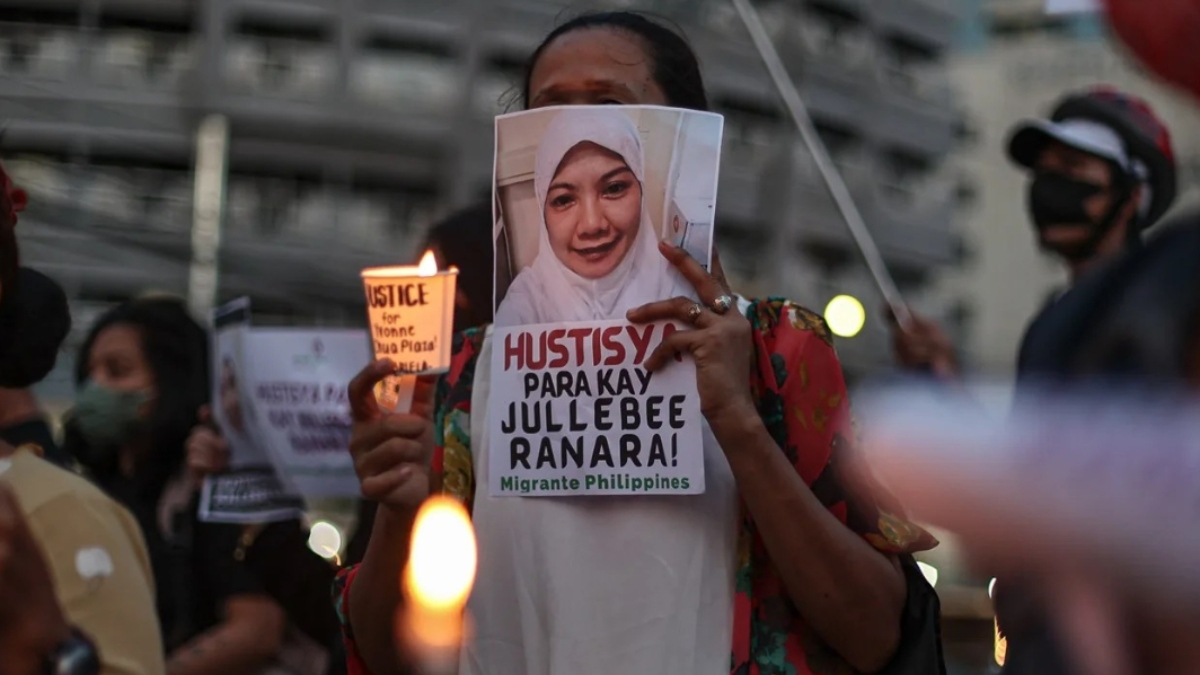Migrante International, a group championing the rights of overseas Filipino workers (OFWs), has urged the Philippine government to redirect the substantial confidential funds of top officials towards enhancing protection for migrant workers. This call comes amidst recent developments in the tragic murder case of OFW Jullebee Ranara.
On September 14, the Department of Foreign Affairs revealed that Ranara’s murderer had been sentenced to a 15-year prison term. The perpetrator was the 17-year-old son of Ranara’s employer. While the resolution of the case was swift, Migrante International, along with Ranara’s family, has expressed deep dissatisfaction with what they perceive to be a lenient sentence.
The rights group emphasized the need for increased vigilance and support for OFWs in Kuwait, urging the Philippine embassy to be “more alert and attentive” to the plight of distressed Filipino workers in the region. Their plea comes on the backdrop of an alarming pattern, with Ranara’s case being one of several involving the murder of Filipino domestic workers in Kuwait in recent years.
Migrante highlighted the enormous confidential funds allocated for top Philippine officials in the proposed 2024 budget and suggested these funds could be better utilized for OFW welfare. They cited the P4.56 billion requested for confidential and intelligence funds by the Office of the President and similarly substantial requests from Vice President Sara Duterte for various departments.
While the Department of Migrant Workers (DMW) is vying for a P29.49 billion budget allocation in 2024, it currently stands at a proposed P15.54 billion, even lower than the 2023 allotment. Senator Raffy Tulfo suggested infusing the DMW with confidential funds to curb illegal recruitment, a sentiment echoed by DMW officer-in-charge Hans Cacdac, who believes increased non-confidential funds for surveillance could enhance the department’s efficacy.
In light of the Ranara case, Migrante emphasized the urgent need for a reassessment of the sentence handed down by the Kuwaiti court, terming it an “insult” to the deceased’s family and other OFWs. Ranara’s father echoed this sentiment, lamenting the lack of justice for his daughter in a heartfelt radio interview. However, efforts for a more severe penalty face legal barriers, as the 15-year sentence is the maximum punishment applicable to minors under Kuwaiti law, according to Foreign Undersecretary Eduardo de Vega.
Furthermore, the group has revived calls for the abolition or reform of the kafala system — a sponsorship framework allowing employers substantial control over migrant workers in several Gulf states. They urged the Philippine government to foster decent job opportunities domestically to lessen dependency on foreign nations for employment.






